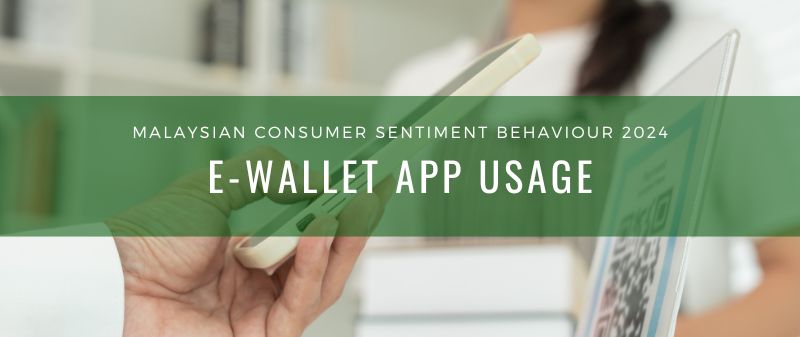August 12, 2021 5:23AM
Is health supplement consumption on the rise in Malaysia?

Owing to the Covid-19 pandemic and the high rate of obesity and diabetes among Malaysians, Malaysians have become increasingly more health-conscious. The concern in preventing serious illnesses such as heart complications, hypertension, and the onset of diabetes during the pandemic is at the forefront of Malaysians’ minds. This naturally translates to an increase in health supplement uptakes, where 71% of Malaysians are consumers of supplements in 2021.
The health supplements market in Malaysia has grown by ~50% from RM 2.07 billion in 2014 to RM 3.1 billion in 2019 and is projected to grow at a faster rate during the pandemic and in the near future. Health supplement brands should seek to capitalize on this market opportunity by employing an effective strategy that strikes the heart of the consumer.
Developing an effective strategy would require understanding the consumer from various angles: measure the consumer’s usage and attitude towards supplements; study their motivation for consumption; and compare your brand image and level of awareness against your competitors; identify new market trends and measure the popularity of purchase of supplements through online channels.
Vodus has surveyed 9000+ Malaysians in August 2021 to gain an overview of the Malaysian supplement market. This study includes: identifying the different segments of consumers on health supplements; ascertaining their consumption habits; understanding their attitude and motivation for consuming supplements; measure the popularity of online purchase of supplements.
Health Supplement Landscape
A staggering 50% of all Malaysians are regular consumers of health supplements. 1 in 4 of all Malaysians are daily consumers of supplements and 2 in 10 are consuming alternate days or weekly. Moreover, a quarter of Malaysians consume health supplements only when necessary and 1 in 5 do not consume or purchase any types of supplements.
4 of the top 5 most popular supplement brands listed are sold via multi-level marketing (MLM). The only over-counter brand in the top 5 is Blackmores, which is ranked at 3rd place with a 14% market share. This signifies that the MLM brands have a significant market share in the Malaysian health supplement market. Shaklee is the most widely consumed supplement brand in Malaysia, capturing over 1/5th of the target market, followed by Herbalife.
Blackmores is the most popular supplement brand among the Chinese, adults aged between 55 to 64 years and those living in the Central region. Shaklee is the dominant brand among the Malays, while Herbalife is dominant among the Indians.
Vitamin C is the most widely consumed supplement. Half of the regular consumers of supplements are consumers of vitamin C, while 1 in 5 consume Multivitamins and Fish Oil respectively, 1 in 10 are consumers of Folic Acid, Zinc, Magnesium and Probiotics respectively. Chinese and those aged 65 and above consume Fish Oil and Multivitamins significantly more than others.
Motivation for health supplement consumption
Nearly half of supplement consumers consume supplements to strengthen their body’s immune system to protect against diseases, followed by a third of consumers who consume supplements to maintain their general well-being. 1/5th of consumers cite prevention of serious illnesses and balancing the shortfall of nutrients in their diet respectively as their motivation for consuming supplements. 17% of supplement consumers consume supplements due to recommendations by their doctors.
Purchase Channels
Despite the e-commerce boom in Malaysia during the pandemic, more than half of the regular supplement consumers are still buying their supplements through traditional pharmacies, while ~19% are purchasing from middlemen or agents. Online purchases through Facebook, Instagram and other websites are still negligible. Therefore, there are still opportunities for supplement brands to grow in the e-commerce space.
Marketing channels for the promotion of supplement brands
Facebook is the most popular platform for health supplements brands to advertise or promote their product, followed by Shopee and Instagram. 1/5th of the supplement consumers did not recall seeing any advertisements on any of the listed platforms.
Conclusion and way forward
The Covid-19 pandemic has accelerated the adoption of the overall e-commerce landscape. Results from earlier studies have shown that the growth in the overall e-commerce space is expected to sustain even after the pandemic has ended. Such a positive industry outlook will likely attract health supplement players to compete in the rapidly maturing e-commerce landscape. With the supplement e-commerce landscape still in its infancy, the opportunity is now ripe for supplement brands to innovate and bring their business online to capitalize on this upward trend of shopping online.
Furthermore, this study warrants a deep dive into the reasons for regular supplement consumers who still prefer buying their supplements offline, contrary to the boom in e-commerce observed during the Covid-19 pandemic. It is also important to find out the motivation for purchasing supplements via online channels and how many discounts are needed to be given to ensure a successful conversion of online health supplement sales. These insights are essential for developing an effective marketing strategy to capture the blue ocean health supplement e-commerce landscape.
Growth opportunities in the e-commerce space will have to come from either competition among existing online shoppers, increasing frequency of purchase of existing online shoppers or encouraging non-online shoppers to shop online.
To compete for a share in the existing online market, you will need to create a stronger brand presence than your competitors and improve the overall brand image with the help of a brand health tracker to measure how consumers perceive your brand relative to your competitors, identify the areas of improvement in your brand image and construct an effective branding strategy.
To encourage a higher frequency of online shopping, you will need persistent marketing campaigns and a strong understanding of consumer segments. This can be addressed with target market research to identify your low-hanging fruits and identify the key traits that they are looking for. With these insights, you can then construct an effective marketing strategy to send the right message to the right audience.
If you choose to go down the path of encouraging non-online shoppers to shop online instead of competing for market share, you will need to understand the pain points of offline shoppers with a target market research and understand their usage and attitude to develop a strategy to address them. Exploring the blue ocean of health supplement e-commerce may be challenging, but success can pay huge dividends than competing for market share in the red ocean.













